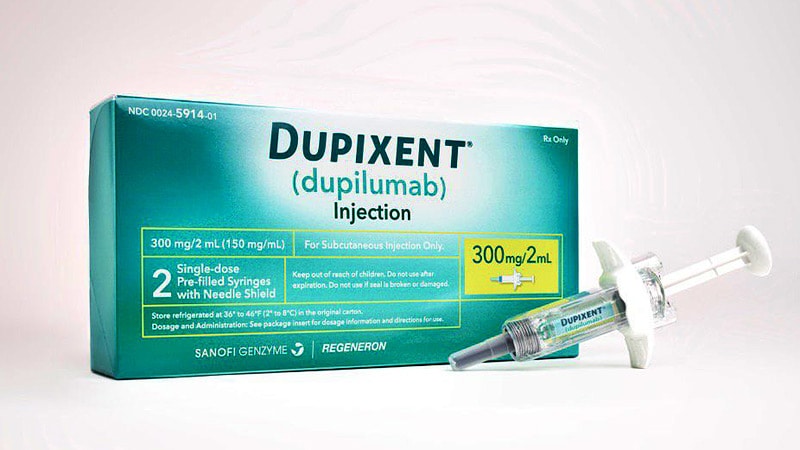Cancer survivors: Care for your body after treatment
Simple steps can improve your sense of well-being and your quality of life after cancer treatment. Find out what you can do.
After your cancer treatment, you’re eager to return to good health as a cancer survivor. And after your initial recovery, there are ways to improve your long-term health so that you can enjoy the years ahead.
The recommendations for cancer survivors are no different from those for anyone who wants improved health: Exercise, eat a balanced diet, maintain a healthy weight, get good sleep, reduce stress, avoid tobacco and limit the amount of alcohol you drink.
For cancer survivors, the following strategies have added benefits. These simple steps can improve your quality of life, helping your transition into being a survivor. Here’s what you can do to take care of yourself after cancer treatment.
Exercise
Regular exercise increases your sense of well-being after cancer treatment and can make your recovery faster.
Cancer survivors who exercise may experience:
- Increased strength and endurance
- Fewer symptoms of depression
- Less anxiety
- Reduced fatigue
- Improved mood
- Higher self-esteem
- Less pain
- Improved sleep
- Lower risk of the cancer coming back
- A sense of well-being
There are many other benefits of exercise. It’s good for your heart, lungs and other body systems. For this reason, cancer survivors are encouraged to exercise on a regular basis.
Adding physical activity to your daily routine doesn’t take a lot of extra work. Focus on small steps to make your life more active. Take the stairs more often. Park farther from your destination and walk the rest of the way. Check with your health care provider before you begin any exercise program. You may look for a personal trainer or other fitness specialist to help you get started.
With your provider’s approval, start slowly and work your way up. The American Cancer Society recommends adult cancer survivors exercise for at least 150 to 300 minutes a week. Try to include strength training at least two days a week, with at least one day off in between. As you recover and adjust, you might find that more exercise makes you feel even better.
Sometimes you won’t feel like exercising, and that’s OK. Treatment side effects, such as fatigue, can keep you sidelined. When you feel up to it, find a gentle activity that feels good to you. For example, take a walk around the block. Do what you can, and remember that rest also is important to your recovery.
Eat a balanced diet
Vary your diet to include lots of fruits and vegetables as well as whole grains. The American Cancer Society recommends that cancer survivors:
- Eat at least 2.5 to 3 cups of vegetables and 1.5 to 2 cups of fruits every day.
- Choose healthy fats, including omega-3 fatty acids, such as those found in fish and walnuts.
- Select proteins that are low in saturated fat, such as fish, lean meats, eggs, nuts, seeds and legumes.
- Opt for healthy sources of carbohydrates, such as whole grains, legumes, and fruits and vegetables.
Eating this way will ensure that you’re getting plenty of the vitamins and nutrients you need to help make your body strong.
It’s not known if a certain diet or certain nutrients can keep cancer from coming back. Studies examining low-fat diets or diets that contain specific fruits and vegetables have had mixed results. In general, it’s a good idea to eat a varied diet that emphasizes fruits and vegetables.
While it may be tempting to add vitamin and mineral supplements to your diet, resist that urge. Some cancer survivors think that if a small amount of vitamins is good, a large amount must be even better. But that isn’t the case. In fact, large amounts of certain nutrients can hurt you.
If you’re concerned about getting all the vitamins you need, ask your provider if taking a daily multivitamin is right for you.
Maintain a healthy weight
You may have gained or lost weight during treatment. Try to get your weight to a healthy level. Talk to your provider about what a healthy weight is for you and the best way to go about achieving that goal weight.
For cancer survivors who need to gain weight, this will likely involve finding ways to make food more appealing and easier to eat. Talk to a registered dietitian who can help you learn ways to gain weight safely.
You and your provider can work together to control nausea, pain or other side effects of cancer treatment that may be preventing you from getting the nutrition you need.
If you’re a cancer survivor who needs to lose weight, take steps to lose weight slowly. Slowly means losing no more than 2 pounds (about 1 kilogram) a week. Control the number of calories you eat and balance this with exercise. If you need to lose a lot of weight, it can seem daunting. Take it slowly and stick to it.
Rest well
Sleep problems are more common in people with cancer and cancer survivors. This can be due to physical changes, side effects of treatment, stress or other reasons.
Getting enough sleep is an important part of your recovery. Sleeping gives your mind and body time to recover and refresh to help you function at your best while you’re awake. Getting good sleep can boost your brain function, improve hormone function and lower blood pressure. It also can just make you feel better in general. Plan to get at least seven hours of sleep every night.
To optimize your chances at getting good sleep, practice healthy sleep habits:
- Avoid caffeine for at least eight hours before bedtime.
- Stick to a regular sleep schedule.
- Avoid computer and television screens for one to two hours before bedtime.
- Exercise no later than two to three hours before going to bed.
- Keep your bedroom quiet, dim and cool.
If you feel excessively sleepy during the day, talk with your provider. You may have a sleep disorder or a problem caused by side effects of your cancer or its treatment.
Reduce stress
As a cancer survivor, you may find that the physical, emotional and social effects of having cancer have taken a toll on you. There’s no evidence that managing stress improves chances of cancer survival. But using effective coping strategies to deal with stress can greatly improve your quality of life. It can help relieve depression, anxiety, and symptoms related to the cancer and its treatment.
Effective stress management strategies may include:
- Relaxation or meditation techniques, such as mindfulness training
- Counseling
- Cancer support groups
- Medicines for depression or anxiety
- Exercise
- Interacting with friends and family
Stop using tobacco
Kick the habit once and for all. Smoking or using chewing tobacco puts you at risk of several types of cancer. Stopping now could reduce your risk of cancer coming back. Quitting lowers your risk of developing a second type of cancer.
If you’ve tried quitting in the past but haven’t had much success, seek help. Talk to your provider about resources to help you quit.
Drink alcohol in moderation, if at all
If you choose to drink alcohol, do so in moderation. For healthy adults, that means up to one drink a day for women of all ages and men older than age 65, and up to two drinks a day for men age 65 and younger.
Alcohol does have health benefits in some people — for instance, consuming a drink a day can reduce your risk of heart disease. But it also increases the risk of certain cancers, including those of the mouth and throat.
While it isn’t clear whether drinking alcohol can cause cancer recurrence, it can increase your risk of a second primary cancer.
Weigh the risks and benefits of drinking alcohol and talk it over with your doctor.
Do what you can
While you may worry that it will take an entire overhaul of your lifestyle to achieve all these goals, do what you can and make changes slowly. Easing into a healthy diet or regular exercise routine can make it more likely that you’ll stick with these changes for the rest of your life.
From Mayo Clinic to your inbox
Sign up for free, and stay up to date on research advancements, health tips and current health topics, like COVID-19, plus expertise on managing health.
To provide you with the most relevant and helpful information, and understand which information is beneficial, we may combine your email and website usage information with other information we have about you. If you are a Mayo Clinic patient, this could include protected health information. If we combine this information with your protected health information, we will treat all of that information as protected health information and will only use or disclose that information as set forth in our notice of privacy practices. You may opt-out of email communications at any time by clicking on the unsubscribe link in the e-mail.
Oct. 26, 2022
- Facing forward: Life after cancer treatment. National Cancer Institute. https://www.cancer.gov/publications/patient-education/facing-forward. Accessed Oct. 2, 2022.
- Rock CL, et al. American Cancer Society nutrition and physical activity guideline for cancer survivors. CA: A Cancer Journal for Clinicians. 2022; doi:10.3322/caac.21719.
- Long-term side effects of cancer treatment. Cancer.Net. https://www.cancer.n et/survivorship/long-term-side-effects-cancer-treatment. Accessed Sept. 11, 2022.
- Rock CL, et al. American Cancer Society guideline for diet and physical activity for cancer prevention. CA: A Cancer Journal for Clinicians. 2020; doi:10.3322/caac.21591.
- Survivorship. National Comprehensive Cancer Network. https://www.nccn.org/guidelines/guidelines-detail?category=3&id=1466. Accessed Aug. 19, 2022.
- Psychological stress and cancer. National Cancer Institute. https://www.cancer.gov/about-cancer/coping/feelings/stress-fact-sheet. Accessed Oct. 2, 2022.
- Balachandran DD, et al. Evaluation and management of sleep and circadian rhythm disturbance in cancer. Current Treatment Options in Oncology. 2021; doi:10.1007/s11864-021-00872-x.
- Sleep disorders (PDQ) — Patient version. National Cancer Institute. https://www.cancer.gov/about-cancer/treatment/side-effects/sleep-disorders-pdq#section/all. Accessed Oct. 2, 2022.
- A good night’s sleep. National Institute on Aging. https://www.nia.nih.gov/health/good-nights-sleep. Accessed Oct. 2, 2022.
.
Note: This article have been indexed to our site. We do not claim legitimacy, ownership or copyright of any of the content above. To see the article at original source Click Here






![[기자가만난세상] 첫 투표 앞둔 딸에게 thumbnail](http://img.segye.com/content/image/2022/01/21/20220121514445.jpg)

